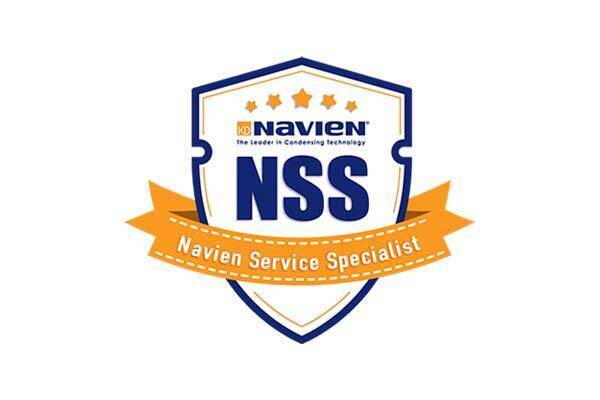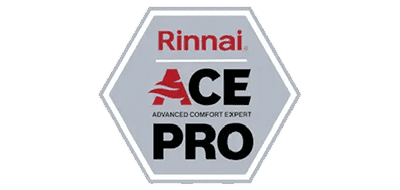Key Takeaways
- Common signs of a sewer leak include bad smells, wet patches, cracking walls, rising water bills, and multiple clogged drains.
- There are many causes of sewer leaks, including tree roots, aging pipes, and soil movement.
- Pros can detect sewer leaks with camera inspections, water and smoke testing, and audio tools.
- If you suspect a sewer leak, call a professional promptly to minimize the damage.
Suspect a Sewer Leak? Call Houston’s Trusted Leak Detection Experts
Worried you might have a leaking sewer line? We’ll explore some common signs of sewer leaks, as well as causes, detection methods, and repairs. Explore the basics of sewer leaks and find the right pro for your sewer leak detection in Houston, TX.
Signs You Might Have a Sewer Leak
Keep an eye out for these common signs of a broken sewer pipe:
- Sewer odors indoors or outdoors
- Unexplained wet spots in yard or lawn
- Cracks in walls or foundation
- Sudden spike in water bill
- Multiple drains clogging simultaneously
What Causes Sewer Line Leaks in Houston Homes?
Learn some of the most common causes of a sewer line leak in Houston.
Aging cast iron or clay sewer pipes
All pipes are subject to wear and tear, particularly in older homes where pipes were often made of cast iron or clay. As these pipes begin to corrode or break, it can lead to a major sewer leak.
Tree root intrusion
Tree roots naturally look for underground water sources, which can lead them to your sewer line if there’s a tiny crack in the pipe. Roots will force their way around or into the pipe, expanding the leak and even clogging the line.
Shifting soil & Houston’s expansive clay
Houston’s clay expands when wet and shrinks when dry — a deadly combination for your sewer line. This frequent movement puts pressure on your pipes, causing them to shift. This can lead to cracks and breaks in your sewer line.
Corrosion from household chemicals
While household chemicals are helpful for cleaning, they can cause significant damage to your pipes, increasing the rate of corrosion and breakdown. Gentle or natural cleaners like baking soda and vinegar are safer for your plumbing and can help reduce the likelihood of a sewer leak.
How Do Plumbers Detect a Sewer Line Leak?
Plumbers often use these methods for underground sewer leak detection in Houston:
Sewer camera inspections
A sewer camera inspection involves a video camera attached to a long, flexible rod and inserted into your sewer line. This lets your plumber visually inspect the entire line to determine the location and extent of the issue.
Hydrostatic pressure testing
Hydrostatic testing uses pressurized water to detect and locate a leak. This is often helpful for small leaks that a camera may not see.
Smoke testing for leak location
Similar to hydrostatic pressure, smoke testing involves filling the pipe with non-toxic smoke and noting the location where the smoke escapes. This method is often used for pipes within walls, where water testing could cause more water damage.
Infrared and acoustic detection tools
These methods use sound to locate a leak and can even catch the noise of escaping water under the soil. This is a good option for locating leaks without digging.
Sewer Leak Repairs We Handle After Detection
We offer a wide range of residential plumbing and commercial plumbing services to address any sewer leak. Some common sewer leak repairs we handle include:
Spot repairs for localized leaks
If there’s a small, localized leak, our plumbers can perform a spot repair. This is an efficient and cost-effective way to patch the sewer line without needing to replace the entire pipe.
Trenchless pipe lining
If your sewer line has multiple leaks, trenchless pipe lining is an effective way to repair the issue without extensive digging. Rather than replacing the pipe, your plumber will insert a lining that covers the length of the pipe, essentially making a new pipe that fits over the old one.
Traditional dig & replace services
For old sewer lines with extensive damage, the best option may be a full replacement. This involves digging up and removing the old sewer line and replacing it with a new, modern one.
Houston Zip Codes We Serve
At Nick’s, we’re here to help with your plumbing issues, no matter where you are in Houston. Our service area covers almost all of the Houston metropolitan area, including ZIP codes like:
- 77084 (Bear Creek)
- 77036 (Sharpstown)
- 77077 (West Houston)
- 77057 (Galleria/Uptown)
- 77095 (Copperfield/Cy-Fair)
- 77024 (Memorial)
Call Nick’s Plumbing for Professional Sewer Leak Detection in Houston
Looking for professional plumbing leak detection in Houston, TX? Our team at Nick’s Plumbing is on the job with the tools and expertise you need for great plumbing repairs. Our pros handle a wide variety of sewer leaks, from preliminary inspections to emergency sewer repairs. We also offer financing options to help you access the services you need at a price that fits your budget. Contact us to book your sewer line repair, installation, or inspection today.
Frequently Asked Questions
How can you prevent sewer line leaks?
While some issues like aging pipes are inevitable, there are plenty of steps you can take to reduce the chances of a sewer line leak. Avoid disposing of grease, oils, or non-flushable items like wipes down the drain, as these can clog the sewer line and lead to a leak. It’s also helpful to use gentle cleaning products as opposed to harsh chemicals that can corrode your pipes.
How often should you get a sewer line inspected?
The EPA recommends regular sewer line inspections, ideally once a year. This helps catch any potential issues early before they can cause damage to your plumbing system and home.
What are some early signs of sewer line problems?
Slow drains are a common early sign of issues with your sewer line, especially when you have multiple slow drains. Other early signs include an inexplicable increase in your water bill and changes to grass growth in the area around where your sewer line is buried.
























